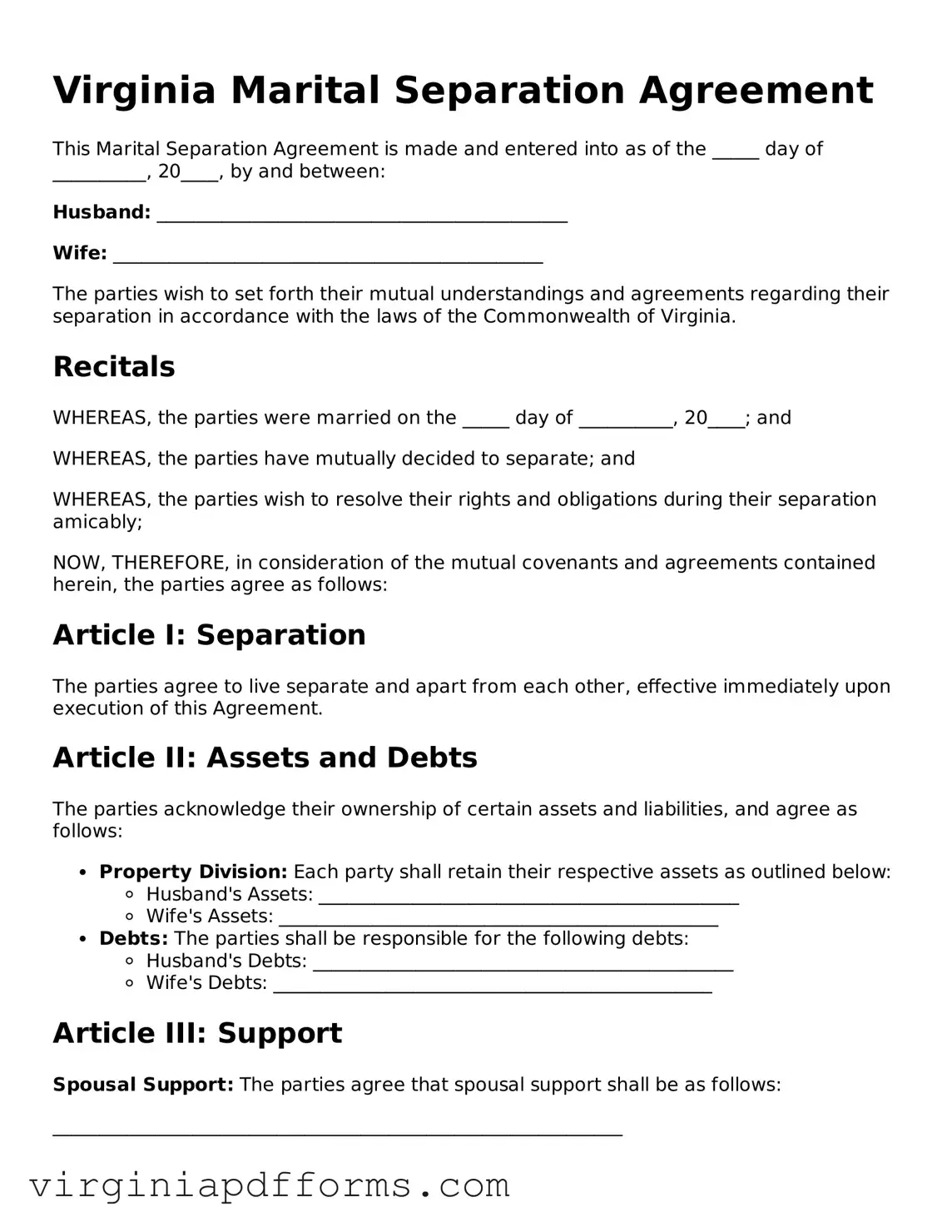Attorney-Approved Virginia Marital Separation Agreement Document
The Virginia Marital Separation Agreement is a legal document that outlines the terms and conditions agreed upon by spouses who wish to live apart while remaining legally married. This agreement addresses various aspects such as property division, child custody, and financial support. It serves to protect the rights of both parties during the separation process.
Access My Document Now

Attorney-Approved Virginia Marital Separation Agreement Document
Access My Document Now

Access My Document Now
or
Free Marital Separation Agreement File
Need this form wrapped up fast?
Finish Marital Separation Agreement online — edit, save, download without effort.